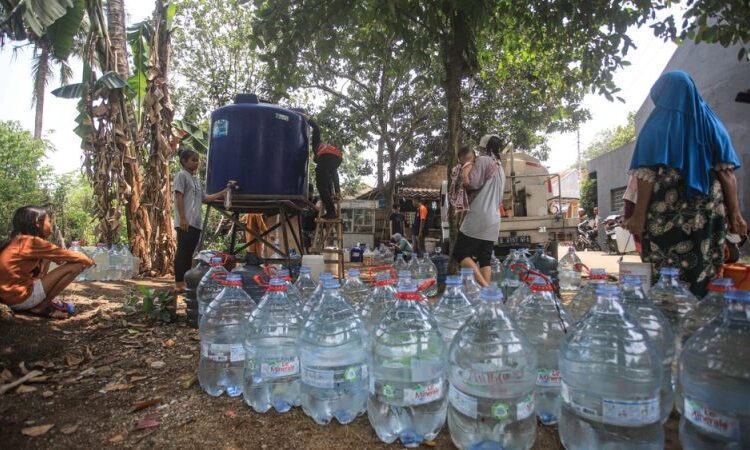Europeans overwhelmingly support investment in ‘international solidarity’, survey finds – Euractiv

The vast majority of Europeans, and especially Italians, are in favour of their country investing in development aid outside of EU borders, according to a survey published by the French Development Agency (AFD) on Tuesday (14 May).
For its survey on Europeans’ support for international solidarity and sustainable development, AFD questioned over 6,000 Europeans in Poland, Italy, Germany, France, and Sweden in April 2024.
Amid a European election campaign marked by a rise of nationalist parties and a tendency towards protectionism, almost three in every four Europeans (72%) believe that the challenges facing the world require collective responses rather than inward-looking attitudes.
For ADF director Rémy Rioux, this is hardly surprising. “The Treaty of Rome created the European Development Fund [EDF]. The first aspect of Europe is not geopolitical. It is first and foremost a vision of cooperation and development”, he said when presenting the results of the survey on Tuesday.
However, the contrast is more marked when we look at countries in detail: 87% of Italians are in favour of their country supporting developing countries, compared with only 66% of French people.
In Germany and Sweden, the figure is 71%, and in Poland 72%.
The head of the AFD admitted there is “a certain amount of scepticism in France”, but still called it a “high result”. On the other hand, he said he was “a little surprised” to see such high results in Italy.
According to him, this could be explained by Prime Minister Giorgia Meloni’s “very strong political message” when presenting the Mattei Plan, which calls for “investment in Africa”.
In January, Meloni convened twenty-five African leaders in Rome and pledged to make African development a central theme of her term of office. The aim was twofold: to become an energy hub for Europe and to reduce migratory flows.
“It’s a concrete plan [the Mattei Plan] of strategic interventions, focused on a few medium- and long-term priorities: education and training, health and agriculture, water and energy”, she told the summit.
Rioux pointed out that although Italy had dropped out of development aid in the early 2000s, budgets have increased in recent years, notably under former prime ministers Matteo Renzi and Mario Draghi.
Asked where development aid should go first, respondents gave priority to Africa and EU enlargement candidate countries.
France favours French-speaking Africa, Italy the Maghreb countries, and Germany and Poland the enlargement candidates.
The countries of Latin America, Asia and the Middle East come last on the list.
Investing in migration
The survey also considered migration issues and respondents were divided on the impact of migrants on their countries’ economy and culture.
Italy and Sweden consider this impact to be positive, with 59% and 54% respectively, compared to only 38% of French and Polish respondents and 46% of Germans.
However, according to the results of the survey, a majority of Europeans (83%) are convinced that their country should help and invest in migration-related issues.
This entails allocating more effort to combating human trafficking, supporting job creation in developing countries and helping governments to develop their migration policies, among other things.
Around 70% of Poles believe their country should support populations and regions affected by forced displacement linked to crises, conflicts or climate change. The figure is 67% in France, 68% in Germany, 74% in Sweden, and 82% in Italy.
“Poland is very much in favour of development aid”, said Phillipe Gautier, director general of MEDEF International, a non-profit promoting the French companies’ know-how abroad.
He said that “since the start of the war in Ukraine in particular, there has been an increased perception of the risks from the outside world and the need to commit to protecting its borders”.
While the EU has been hit by numerous crises during the last term of the European Parliament – COVID-19, Russia’s war against Ukraine, energy crisis, inflation – the results of the AFD survey show that “in the face of rising violence and geopolitical instability, there has been a resurgence in international cooperation for sustainable development”, concluded Rioux.
[Edited by Chris Powers]







